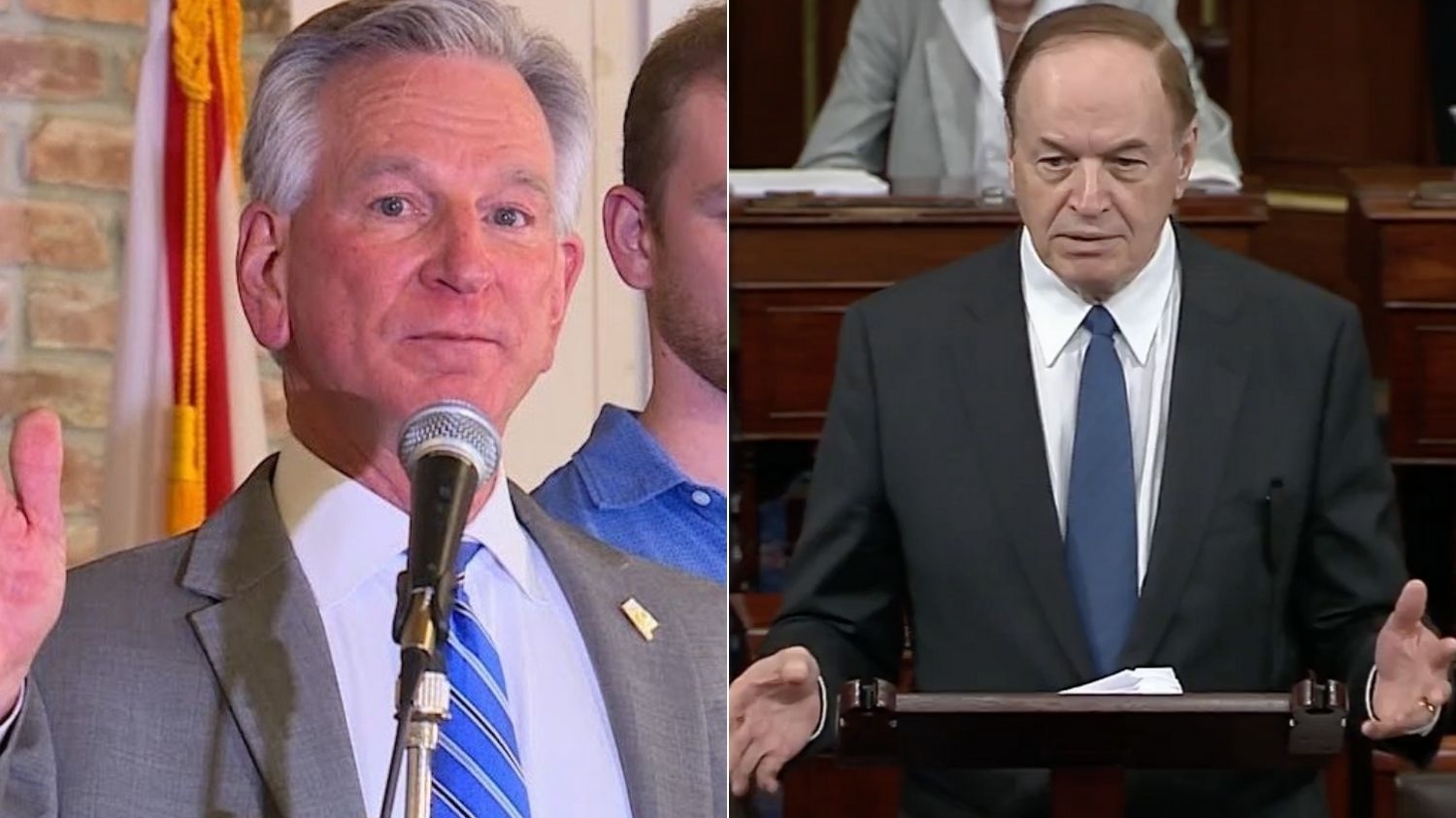Senators Richard Shelby and Tommy Tuberville, both Republicans representing Alabama, on Saturday voted against the $1.9 trillion pandemic spending and relief bill in Congress.
“I voted against this bill today because it could further wreck the economy and ignite inflation,” Shelby said. “This legislation includes a host of non-COVID-related left-wing policies. Not only does it cost the American taxpayers $1.9 trillion, but only nine percent of the funding in the bill goes toward the immediate fight against COVID and one percent toward vaccines. The bill does nothing to get kids back in classrooms and, instead, includes a massive cash bailout for some mismanaged states and local governments. Democrats are forcing a liberal wish list of pet projects through Congress that’s masked as a pandemic rescue package. I am disappointed that we were blocked at every turn from engaging and passing real COVID relief in a bipartisan, targeted manner, just like the Senate did five times last year.”
“Democrats refused to negotiate with Republicans on this bill from the start because they knew this reconciliation process was their best chance to pass President Biden’s progressive wish list,” Tuberville said. “To put it into perspective, until today, the most partisan vote on the past five COVID relief bills was 92-6. This bill is a broken promise to the American people – one that hides under the name of ‘COVID relief’ when it should actually be called ‘liberal relief.’ Instead of targeting funds to the people, communities, and businesses who actually need it, this bill sends billions to bail out poorly managed states and puts less than 1% of funding toward vaccines.”
“$1 trillion from past relief bills has not yet been used, and the small percentage of the funds in this bill that will actually go to people who really need it will take years to get there,” Tuberville said. “This legislation is a reckless use of taxpayer dollars when what Americans and our economy really needs now is a plan to start reopening.”
Tuberville filed 23 amendments to the reconciliation bill focused on providing targeted health and financial relief to those most impacted by the COVID-19 pandemic.
House and Senate Democrats have used the budget reconciliation process to consider this legislation, which has allowed them to pass the legislation without the cooperation of Republicans. Reconciliation bills only require a simple majority for final passage thus there can be no filibuster by Senate Republicans. Republicans used similar rules to pass the Trump tax reform bill in 2017.
The $1.9 trillion emergency COVID bill will all be paid for by more deficit spending, despite signs that the economy is recovering rapidly as more people receive their COVID vaccinations and more states loosen up restrictions on the economy. Democrats forced the bill through the Senate on a vote of 50 to 49 vote.
It now goes back to the Democratically-controlled House for them to vote on the Senate changes to the bill. If that happens, then it will go to President Joe Biden’s desk, where he is expected to sign it into law.
Most Americans could start getting their $1,400 per person COVID stimulus checks within weeks. The legislation includes $350 billion in funding for state and local governments. The bill includes increased subsidies for lower-income Americans for the Affordable Care Act exchanges so persons getting their healthcare through the exchange should reprice coverage in a few weeks or months when the changes go into effect. Businesses who qualify for loans under the Payroll Protection Program are encouraged to apply.
Not all of the money will be spent immediately. Only 5 percent of the funding included for K-12 schools would be spent during the current fiscal year, with 95 percent instead spent over the next seven years. Additionally, agriculture-related funds in the bill would be spent over the next decade.






















































